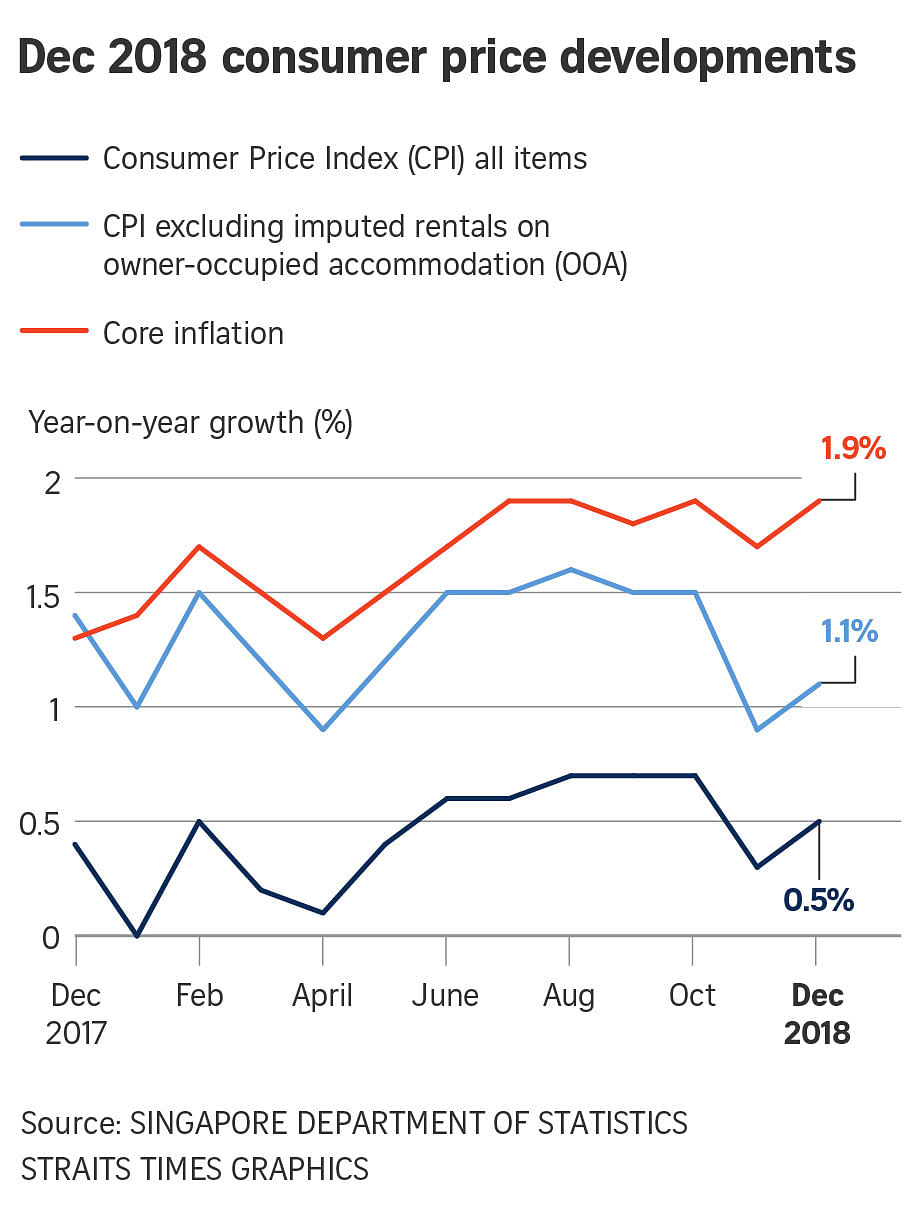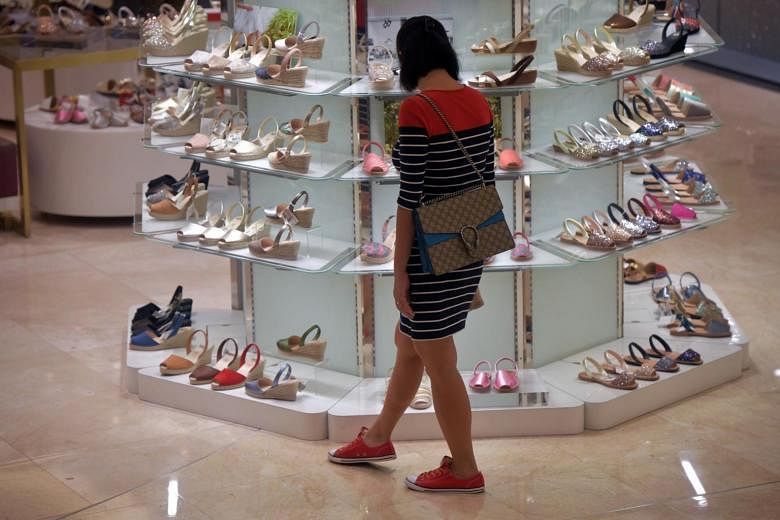SINGAPORE - Singapore's headline - or overall - inflation climbed to 0.5 per cent in December year on year, after falling to a six-month low of 0.3 per cent the month before.
This reflected higher inflation for services and retail items, as well as a smaller decline in accommodation costs, said the Monetary Authority of Singapore (MAS) and Ministry of Trade and Industry (MTI) on Wednesday (Jan 23).
Core inflation, which strips out accommodation and private transport costs, edged up in December as well. It rose to 1.9 per cent year on year, up from 1.7 per cent in November 2018, mainly due to larger increases in the costs of services and retail items.
Both figures came in slightly higher than expected, with a Bloomberg survey of analysts tipping overall inflation to come in at 0.3 per cent, and core inflation at 1.8 per cent.
However, for the whole of 2018, overall consumer prices rose 0.4 per cent - lower than the 0.6 per cent increase in 2017. Core inflation for the year rose to 1.7 per cent, from 1.5 per cent in the year before.
MAS and MTI added that core inflation is expected to come in within the forecast range of 1.5 per cent to 2.5 per cent this year.
Headline inflation is expected to pick up to 1 per cent to 2 per cent in 2019, as the overall drag from accommodation and private road transport costs lessens, said the authorities.
MAS and MTI said that external sources of inflation generally increased last year, with global oil prices coming in higher on average and non-oil import prices picking up.
Domestically, an improving labour market should underpin a faster pace of wage growth in 2018 and 2019 as well, compared to 2017, they said. As domestic demand strengthens further, more of the higher import and labour costs could be passed on to consumers.
But the extent of overall price increases will be capped by more competition in segments such as telecommunications, electricity and retail, said MAS and MTI.
For December, costs in most sectors rose except for private road transport which fell by 3.7 per cent, and accommodation costs, which decreased by 1.9 per cent due to a more gradual fall in housing rentals.
Services inflation increased to 1.5 per cent, up from 1.2 per cent in November due to a stronger pick-up in holiday expenses and airfares. Another contributing factor was a smaller decline in telecommunication services fees.
The overall cost of retail items moved up 1.7 per cent in December as well, mainly because of larger increases in the prices of clothing and footwear, as well as household durables.
Food inflation was 1.4 per cent last month, unchanged from the two months before that.
This comes as price increases for both non-cooked food items and prepared meals remained broadly the same.
The cost of electricity and gas rose by 14.6 per cent year on year, lower than the 15.4 per cent increase in November, due to the phased nationwide launch of the Open Electricity Market on prices.



